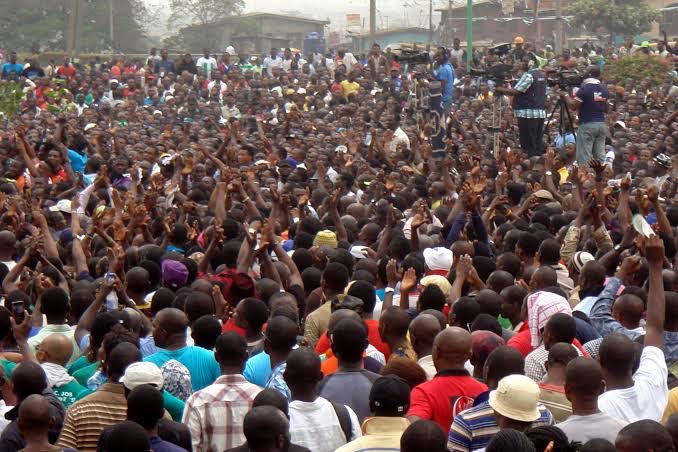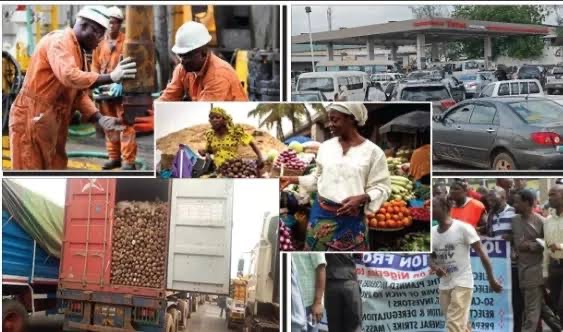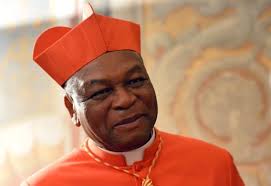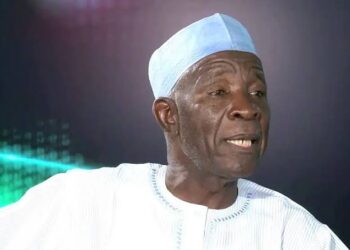The adversity faced by the Nigerian populace over the past year remains unforgettable due to the cessation of fuel subsidies by the Federal Government.
Recall that President Ahmed Bola Tinubu, on May 29, 2023, during his inauguration as the newly elected leader of the Federal Republic of Nigeria, declared that the era of fuel subsidies was over. This proclamation was made in his national address following the administration of the oath of office.
The President’s decision elicited varied responses from the citizenry. While some viewed it as a favorable step towards fostering a competitive oil market in Nigeria, others perceived it as a move that would exacerbate the living conditions of ordinary Nigerians. The removal of fuel subsidies was anticipated to result in an escalation of fuel prices, consequently leading to a surge in the prices of goods and services.
The Federal Government sought to reassure the populace, asserting that the current hardships were transient.
On August 1, 2023, President Tinubu, in a nationwide broadcast, disclosed that the Federal Government had accumulated savings of N1 trillion in the two months (June and July) subsequent to the elimination of petrol subsidies.

Furthermore, the Federal Government indicated that these funds had been disbursed to state governors in an effort to alleviate the repercussions of the subsidy removal. This allocation was reflected in the disbursements received by state Governors in preceding months.
The removal of subsidies by the Federal Government precipitated an upsurge in the prices of petroleum products. Beyond the surge in fuel prices, Nigerians also grappled with product shortages amid exorbitant pump prices.
According to a monthly report from the Nigeria Bureau of Statistics (NBC), the average retail price paid by consumers for Premium Motor Spirit (PMS) in April 2024 stood at N701.24 per litre, marking a 176.02 percent increase compared to the value recorded in April 2023, which was N254.06. Additionally, the price of Automotive Gas Oil (Diesel) escalated from N654.48 in April 2023 to N842.25 per litre in April 2024, reflecting a 28.69 percent increase. Household kerosene (HHK) was priced at N1,439.64 in April 2024, indicating a 6.29 percent increase compared to the N1,354.40 recorded in March 2024. However, the cost of refilling a 5kg cylinder of Liquefied Petroleum Gas (cooking gas) declined by 1.06 percent from N6,521.58 in March 2024 to N6,521.58 in April 2024.
In April 2024, Nigeria faced a petrol scarcity crisis, with motorists enduring lengthy queues to procure fuel. The scarcity led to a surge in petrol prices across various regions, reaching an average of N950 per litre.
The transportation sector was not spared from the repercussions, with the cost of ferrying passengers and goods soaring due to market inflation. Short journeys of under two kilometers were now priced at N500, eliciting complaints from passengers and road users regarding the exorbitant charges imposed by motorists.
Motorists attributed the escalated transportation costs to the high prices of petrol, spare parts, and the inadequate road infrastructure.

The Nigerian currency continued to depreciate against foreign currencies, particularly the US dollar, which reached unprecedented exchange rates. The average exchange rate in 2024 stood at approximately N1,283.94 Nigerian Naira to one US dollar, surging from an average of N460.702 in May 2023. This currency devaluation exacerbated inflation on imported goods, impacting the cost of living for Nigerians.
The surge in imported goods’ prices, despite the government’s border closures, exacerbated the economic strain on Nigerians. The prevalent hunger crisis in the country rendered it challenging for the average citizen to afford even a single meal, let alone three square meals a day. The inflated prices of food items were markedly higher than in previous years.
The National Bureau of Statistics (NBC) highlighted the soaring prices of essential food commodities in April 2024. The average price of 1kg of local rice surged by 155.93 percent from N546.76 in April 2023 to N1,399.34 in April 2024. Similarly, 1kg of white garri recorded a 134.98 percent increase, rising from N362.50 in April 2023 to N851.81 in April 2024. 1kg of brown beans also experienced a 12.44 percent price hike from N1,234.40 in March 2024 to N1,387.90 in April 2024. Furthermore, the average price of 1kg of yam tuber spiked by 154.19 percent from N444.69 in April 2023 to N1,130.37 in April 2024. Other food staples such as palm oil and vegetable oil witnessed similar price escalations.
On May 29, 2023, petrol prices surged to an average of N550 per litre in most filling stations within the Anyigba community. Some stations refrained from dispensing their old stock in anticipation of new pricing adjustments, while market vendors inflated the prices of existing inventory.
Emmanuel, reflecting on the economic impact of subsidy removal in an academic setting, highlighted the heightened cost of living for students at Prince Abubakar Audu University (PAAU). He underscored the substantial price increments in goods and services, noting that essentials like rice had doubled in cost over the past year.
Addressing the surge in printing costs, a computer operator attributed the spike to increased petrol prices and other printing material expenses. Despite maintaining customer patronage, particularly from students, the operator lamented the escalating operational costs compared to previous periods.
A commercial bike rider operating within a campus setting expressed discontent with the adverse effects of subsidy removal. He bemoaned the resultant price hikes across various sectors, including spare parts and overall operational expenses. Moreover, he noted that the economic strain had compelled many motorcycle riders to resort to hire purchase schemes, incurring additional charges beyond the standard market rates.



































